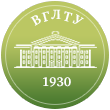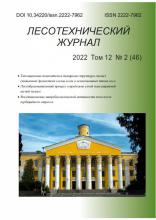Moskva, Moscow, Russian Federation
The article discusses various aspects of the crisis in Russia. It is specified that in Russia there is management, financial and economic crisis, deepened by aggressive policies of the USA and its satellites, the obvious one is the next stage of new geopolitical repartition of the world. The main reasons that led to the current state of the domestic economy are given. To improve the situation the most important aspect is innovative government policy, and knowledge management, in which special place is occupied by information resources and education of labor resources. It is determined that the new ideas that are being developed by highly qualified personnel, possessing deep knowledge in modern conditions, become a source of economic development of the region. The necessity of integration of educational institutions with research institutions on the basis of industrial complex and business structures in the form of a scheme "education – science – personnel – investment – firm - region – business", representing a set of interrelated and interconnected processes that form the overall innovation potential of any economic system, is proved. In the Russian economy, which is based on knowledge, the structure of employment is changing; an increasing share is for workers of intellectual labor in the structure of the working population, the proportion of employees with higher education increases, which is a natural result of development of productive forces in the course of scientific and technical progress. One of the modern requirements to the employees is their ability to train and re-train. A special role in the formation of highly qualified personnel for the Russian economy is designated to information resources, the value increases significantly, they are easily replicated, have increasing marginal utility, they are characterized by positive externalities and discriminatory prices.
crisis, geopolitics, new technologies, knowledge, education, information resources, intellectual work.
Введение
В России наблюдается денежно-кредитный, финансовый, управленческий кризис, имеющий триединую причину:
- структурный кризис;
- значительное технологическое отставание от развитых зарубежных стран;
- ультралиберальная политика правительства, приводящая к обвальной девальвации рубля, неуправляемой инфляции, снижению уровня жизни большинства населения страны [4].
1. Bezrukova T.L., Gyyazov A.T. , Bazieva A.M. Modelling and forecasting of innovative development of entrepreneurial structures under the global competition. Actual problems of economiics, 2016, no. 8(182), pp. 344-351. EDN: https://elibrary.ru/XSWXJT
2. Bezrukova T.L., Dmitriyev V. I., Yakovleva E.A. Gosudarstvennye mehanizmy obespechenija kachestva obrazovanija [State mechanisms of ensuring quality of education] Aktual'nye napravlenija nauchnyh issledovanij 21 veka: teorija i praktika: sbornik nauchnyh trudov po materialam mezhdunarodnoj zaochnoj nauchno-prakticheskoj konferencii [Actual directions of scientific researches of the 21 century: theory and practice: the collection of scientific works on materials of the international correspondence scientific and practical conference]. Voronezh, 2014, no. 2, Issue. 3 (7-3), pp. 262-265. (in Russian).
3. Bezrukova T.L., Gyyazov A.T. Vzaimootnoshenie biznesa i vysshego obrazovanija v nezavisimom gosudarstve [Vzaimootnosheniye of business and the higher education in the independent state Aktual'nye napravlenija nauchnyh issledovanij 21 veka: teorija i praktika: sbornik nauchnyh trudov po materialam mezhdunarodnoj zaochnoj nauchno-prakticheskoj konferencii [Actual directions of scientific researches of the 21 century: theory and practice: the collection of scientific works on materials of the international correspondence scientific and practical conference]. Voronezh, 2014, no. 2, Issue. 3 (7-3), pp. 257-262. (in Russian). DOI: https://doi.org/10.12737/3238; EDN: https://elibrary.ru/RZKQQP
4. Bosua R., Venkitachalam K. Aligning strategies and processes in knowledge management: framework [Text]/R. Bosua. Journal of Knowledge Management, 2013, no. 17(3), pp. 331-346.
5. Bespalov P. V., Gaponenko A. L., Korniyenko V. I., etc. Intellektual'nyj kapital - strategicheskij potencial organizacii [The intellectual capital - the strategic capacity of the organization]. Moscow, 2003, 177 p. (in Russian). EDN: https://elibrary.ru/QOCAED
6. Gayselkhart X. Obuchajushheesja predprijatie v 21 veke [The trained enterprise in the 21 century] Kaluga, 2004, 264 p. (in Russian).
7. Dul J., Ceylan C., Jaspers F. Knowledge workers’ creativity and the role of the physical work environment Human Resource Management, 2011, no. 50(6), pp. 715-734.
8. Fernando de Melo., Maslennikov V.V., Popova E.V., Bezrukova T.L., Kyksova I.V. Quantitative Analysis in Economics Based on Wavelet Transform: a new approach. Asian Social Science Vol., 2015, 11, no. 20, pp. 66-74.
9. Funmilola, Olubunmi Omotayo Knowledge Management as an important tool in Organisational Management: A Review of Literature Library Philosophy and Practice, Libraries at University of Nebraska-Lincoln, 2015, pp. 1-23.
10. Larionov V. G., Falko S.G. Kontrolling sistem upravlenija personalom [Controlling of personnel management systems] Vestnik Akademii [Bulletin of Academy]. 2013, no. 4, pp. 73-78. (in Russian). EDN: https://elibrary.ru/RTYNHT
11. Lenskaya S. A., Eskindarov M. A., Mosin V. V., Epikhina G. M. Intellektual'nyj kapital - faktor jekonomicheskogo razvitija sovremennoj Rossii [the Intellectual capital - a factor of economic development of modern Russia]. Moscow, 2002, 92 p. (in Russian).
12. Lyubimova M. A. Analiz modelej obuchaemogo i obuchenija i osobennosti ih realizacii [The analysis of models of the trainee and training and feature of their implementation] Lesotehnicheskii zhurnal, 2016, no. 1, pp. 283-289. (in Russian). DOI: https://doi.org/10.12737/18751; EDN: https://elibrary.ru/VSZGAT
13. Milner B. Z., Rumyantseva Z.P., Smirnova V. G., Blinnikova A.V. Upravlenie znanijami v korporacijah [Management of knowledge in corporations]. Moscow, 2006, 304 p. (in Russian).
14. Olkiewicz Marcin Knowledge management as a determinant of innovation in enterprises Management and Innovation For Competitive Advantage, 2015, pp. 399-409.
15. Osnovy naukojomkoj jekonomiki (znanija - kreativnost' - innovacii) [Fundamentals of the knowledge-intensive economy (knowledge - creativity - innovations)] Under the editorship of Dr. Econ. Sci., prof. I.A. Maksimtseva. Moscow, 2011. 456 p. (in Russian).
16. Popkova E.G., Kuzlaeva I.M., Bezrukova T.L. Clustering of internet companies as a new course of development of Russia in modern conditions Mediterranean Journal of Social Sciences, 2015, Vol 6, no 4, pp. 209-218. DOI: https://doi.org/10.5901/mjss.2015.v6n4p210; EDN: https://elibrary.ru/UEYUXX
17. Stewart Thomas A. Intellektual'nyj kapital. Novyj istochnik bogatstva organizacij [Intellectual capital. New source of richness of the organizations] Moscow, 2007, 368 p. (in Russian).
18. Sahlberg P. Teaching and globalization International Research Journal of Managing Global Transitions, 2004, no. 2(1), pp. 65-83.












